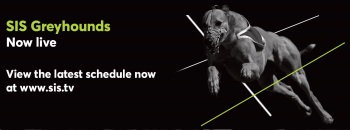“I need to get out of this business.”
I remember the comment from a hefty tattooed dog man sitting in a bar in Abilene, Kansas, probably 20 years ago.
I was attending one of the ‘meets’, something like a cross between a breeders festival and a greyhound sale. The USA’s top rearers towed greyhound trailers the size of aircraft hangers to the home of American racing as wealthy kennel owners scrutinised hundreds of trials before heading to the auction.
For years I thought American greyhound racing was entirely money led. But then I met people like Gary Guccione, David Hays, Dutch Koerner and realised that there were also plenty of real greyhound enthusiasts too.
The guy sitting at the table in his baseball cap was the other sort. There were plenty of them too. These were the guys who would read a newspaper during a race meeting and just glance at the results screens every so often to see how much prize money the kennel had just won.
Clearly, they weren’t running well, or the points weren’t making enough dollars.
So why do I remember that particular scene?
It was because of the terminology. Sure, I’d heard a hundred disillusioned different dog men, but they were getting out of ‘the game’ or ‘the sport’. Never – ‘the business’. That was something that a track promoter might say.
I recalled the scene as I drove home recently from the first meeting of Paul Ephremsen’s innovation panel.
Thankfully, nobody present at the first meeting was under any illusions about the size of our task. We were trying to refine a list of ideas for improving the greyhound industry knowing that there was virtually no money available to implement them, and very few would receive a universal welcome.
I am not sure that there were many shiny new ideas but they were lumped on the table like mangled pieces of rusty metal.
Several would have been fine ‘in an ideal world’ but impossible to deliver in practise. Others were polished up and welded together to produce initiatives that were both worthwhile and deliverable.
On some occasions, we reached consensus on projects that were not deliverable any time soon, but were so fundamentally important that they had to become part of our mission statement.
As I drove home, the cynic in me was edging towards the thought, ‘why are we wasting our time?’
Three years ago, the cynic would have taken over.
But I told myself that we are in different times.
The greyhound/trainer shortage that would level the tables had taken much longer to arrive than I had expected. Track closures, NGRC and independent, had released more ‘product’ (I hate the term but it works in this context) into the market. The barrel of ‘useable’ (ditto) greyhounds had been scraped. No dog was now too slow or too dodgy to be given a race.
But while the decline in supply had continued, the demand had increased. Driven by the BAGS/ARC fight, the tracks have realised that they were going to be short of ‘product’.
For the first time, I feel the owners have the undivided attention of the racecourse promoters, and they have the attention of the betting industry.
Sometimes the chalk monkeys will tell us, ‘we don’t need all this racing’, often followed by ‘we can get cheap product from South Africa’ or ‘Ireland’ or ‘virtual’.
Well get on with it then!
Don’t do us any favours.
But then, if the punters wanted any of that tripe, why are you talking to us anyway?
You DO need us. Look at the figures!
In 2014, a group of MPs estimated that the bookies make £237m per year from greyhound racing.
Surely, it would not be unreasonable, three years on, to round that up to £250m? The bookies claim to pay back in the region of £35-£40m per year in BAGS fees including fund payments (around £7.5m – half what they were 15 years ago).
For simplicity’s sake, we will round that up to £50m. We will also discount the bookmaker payments that go into their own tracks.
So that means that each week, the UK betting industry makes a £4m profit from greyhound racing.
Of course, their biggest profit-maker, by far, with around 56% of yield (eight-fold what they make from greyhound racing) is the FOBT machines.
In January the Government’s cross party triennial review into the effects of the machines on betting shops was published. It was damning and the Government’s response to it must be due any day soon. (It would probably have been published already but for the general election).
The report recommended reducing jackpot limits, increasing ‘spin time’ and reducing numbers of machines. How many of those recommendations will be adopted remains to be seen.
However, contrary to the bookmakers own views, the report did not envisage widespread shop closures unless jackpots were dramatically, rather than reasonably, reduced.
The net result: losing money will take longer and the queues for the machines will grow among the mug punters.
Now where might the bookies find a really handy betting vehicle for quick turnover, high profit, guaranteed margin, gambling . . .?
So the bookies are creaming it.
The tracks are doing ‘okay’ – though nobody is queuing to invest in dog tracks. . . .
And then we have the grass root.
The grass roots are dying. Greyhound racing in Britain is dying.
It strikes me as obscene that the innovation committee are scratching around to try to find initiatives that the bookmakers should be funding. – particularly since most of the ideas presented to the innovation committee were centred on welfare. (No euthanasia on commercial grounds was top of the list)
When you start a debate with ‘how do we attract more owners?’, you explore the benefits of the owner experience and conclude that the industry/bookies should not abandoning the same poor sods to pay all the injury and re-homing responsibilities, let alone the kennel bills and purchase costs.
It isn’t rocket science why ownership is in a nosedive.
Do you know how many people bought their first greyhound in 2016? 128!!.
Breeding is bumping along the bottom – there were just 228 litters bred in Britain last year, which would make them an endangered breed. The number of trainers continues to decline due to their average age. That will take a further bump when new kennel regulations are introduced and trainers can’t afford to modernise.
The media is struggling too. It plays a significant role in owner participation and integration. Will winning a SKY race be the same if no one is there to record it, as could happen next year?
Although RPGTV is healthy, the Racing Post greyhound section now operates on a skeleton staff, the Star’s future is far from secure thanks to the GBGB business committee.
We have one industry photographer who travels the length and breadth of the country, because he is a greyhound fanatic first, and businessman second.
Greyhound racing in Britain is a partnership between business and sport, and one of the partners is fed up of being screwed. My American friend would have the solution.













